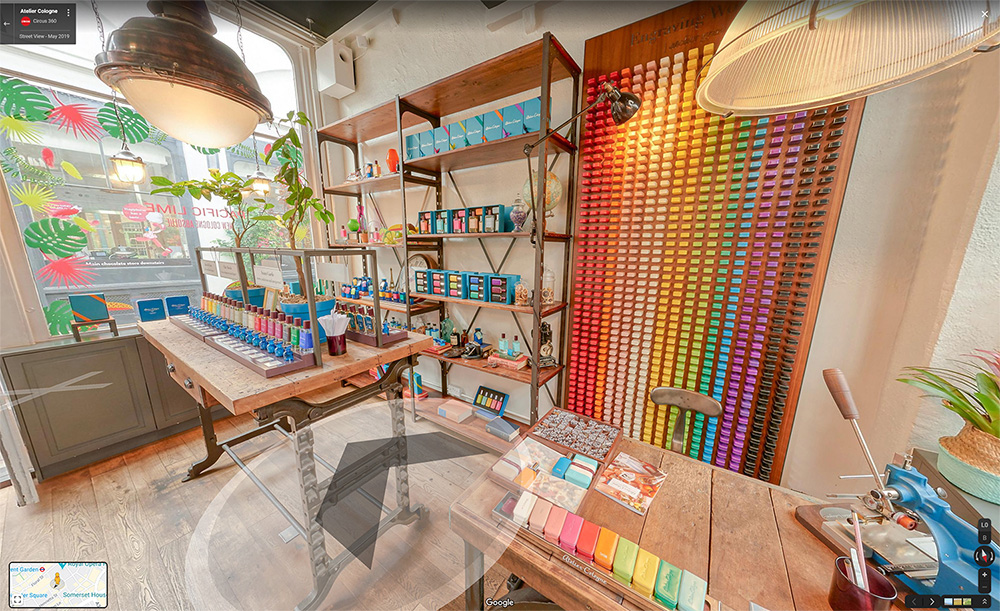virtual sales tools & why businesses need them
Virtual sales tools refer to virtual software and technologies that enable businesses to sell their products or services online. As more and more customers move online, companies are adopting virtual sales tools to stay ahead of the competition and improve their bottom line.
Read on to find out more…


What do Virtual Sales Tools look like?
Virtual sales tools can take on many forms, here are a few examples of what they can look like. This is far from an exhaustive list but it gives you an idea…
1. Virtual showrooms and 3D product visualisation
Virtual showrooms allow customers to view and interact with products in a virtual environment. This technology enables businesses to showcase their products in a more engaging way and helps customers make better-informed decisions. 3D product visualisation can be used in a similar way, allowing customers to view products from every angle and interact with them virtually. This technology can be used by businesses in a range of industries, from furniture retailers to car manufacturers. Take a look at these latest examples by Circus:
XLH x Kyowa Kirin – Virtual 3d Exhibition
Ellison – Virtual Tradeshow Stand
2. Property Virtual Tours
Real estate agents, hotels, and event venues can use virtual tours to showcase their properties and facilities to potential customers. By offering a virtual tour, businesses can give customers a realistic and immersive experience of the space, allowing them to get a better sense of the layout, size, and features of the property. This can be especially useful for businesses that operate in remote or hard-to-reach locations, as it allows customers to get a sense of the property without having to physically visit it. Take a look at this example we created for Luxury property brand, Ballymore:
Ballymore – Virtual Property Tour
The Collective – Virtual Show Round
3. Virtual Shop Tour
A virtual shop tour is an online experience that allows customers to explore a retail store, showroom, or other physical space without actually being there in person. Virtual shop tours can be created using 360-degree photography or video, allowing customers to move around the space and view products and displays from different angles. The tours can be accessed via a website, social media platform, or other digital channel.
Virtual shop tours can be a valuable tool for retailers, allowing them to showcase their products and brand in a unique and engaging way. By providing customers with an immersive and interactive experience, virtual shop tours can help retailers to build brand awareness, generate interest in their products, and increase customer engagement. They can also be useful for customers who may not be able to physically visit the store due to distance, time constraints, or other reasons.
During a virtual shop tour, customers can navigate through the store, zoom in on products, and even interact with them by clicking on hotspots or links that provide additional information. Retailers can also use virtual shop tours to promote sales and discounts, highlight new products, and provide personalized recommendations based on customer preferences and past purchases.
Take a look at our recent examples with these well known stores:
4. AI-powered sales assistants
AI-powered sales assistants can help businesses automate customer support and sales processes. These tools use natural language processing and machine learning to understand customer inquiries and provide relevant responses. By using chatbots, businesses can provide 24/7 customer support and reduce response times, resulting in increased customer satisfaction and improved sales. Such sales assistants can be used on virtual tours and act as a sales tool for customers.
Benefits of Virtual Sales Options
Virtual sales tools offer a range of benefits to businesses, including:
Increased efficiency: Virtual sales tools can automate time-consuming tasks and streamline sales processes, resulting in increased efficiency and reduced costs.
Improved customer experience: By providing customers with engaging and interactive sales experiences, businesses can improve customer satisfaction and build stronger relationships with their customers.
Increased revenue: Virtual sales tools can help businesses sell more effectively and increase revenue. By providing sales teams with the right tools and resources, businesses can improve their conversion rates and close more deals.
The future
Virtual sales tools have already begun to change the way sales teams operate, and this trend is likely to accelerate in the future. Here are some ways in which virtual sales tools may change sales teams in the coming years:
- More focus on virtual selling: With the rise of virtual sales tools, sales teams are likely to place more emphasis on virtual selling, rather than traditional face-to-face sales. This may involve using tools such as video conferencing, chatbots, and virtual showrooms to engage with customers and close deals.
- Increased automation: Virtual sales tools can automate many aspects of the sales process, from lead generation to customer support. As a result, sales teams are likely to rely more on automation to streamline their workflows and free up time for higher-value activities.
- Greater use of data and analytics: Virtual sales tools generate a wealth of data that can be used to analyse and optimize sales processes. Sales teams are likely to rely more on data and analytics to identify trends, improve conversion rates, and drive revenue growth.
- Shift towards remote work: Virtual sales tools enable sales teams to work remotely, which can offer many benefits, such as increased flexibility and reduced costs. In the future, sales teams may be more distributed, with team members working from different locations and collaborating virtually.
- More emphasis on customer experience: With virtual sales tools, sales teams can create more personalized and engaging experiences for customers. This can help to build stronger relationships with customers and increase loyalty.
To recap…
Virtual sales tools offer businesses a range of benefits, from increased efficiency to improved customer experience and increased revenue. By adopting these tools, businesses can stay ahead of the competition and thrive in today’s increasingly digital marketplace. And if you haven’t yet explored virtual sales tools for your own organisation, we recommend you take a look. It won’t belong before virtual sales is the new norm.